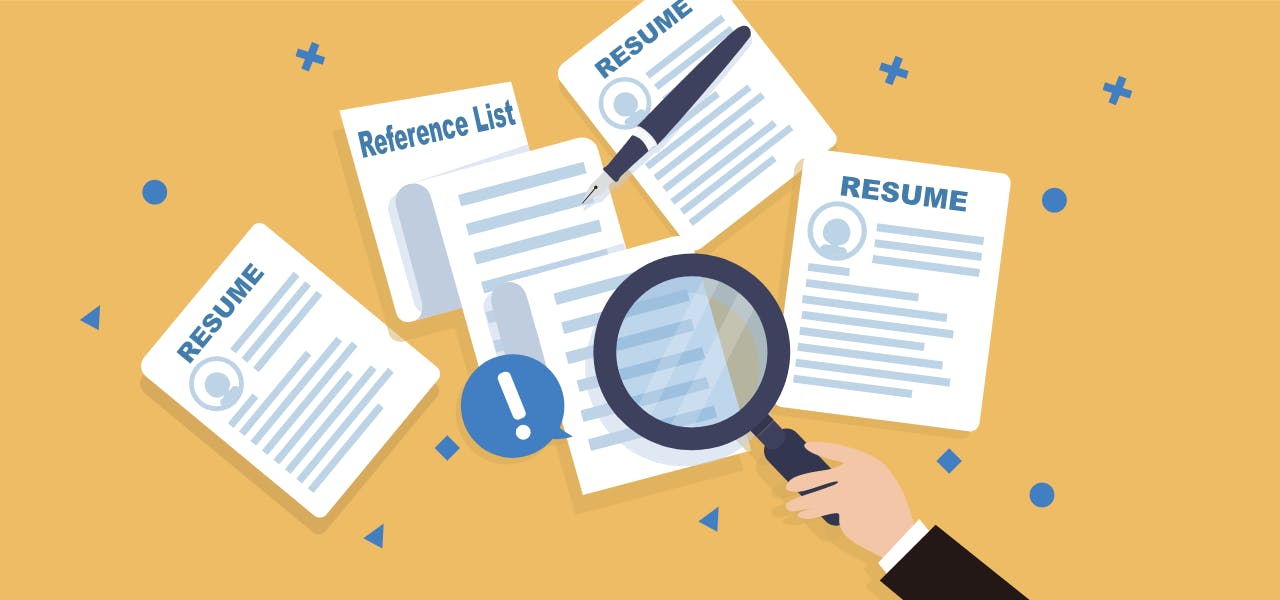Does your Reference List Matter for Recruiters?

As a job applicant, there’s a variety of things one needs to do to impress recruiters or hiring managers in the application process today. For one, everyone has seems to have a good resume. The way social media platforms have manifested themselves in the professional realm has pretty much-allowed everyone who is competing for a job to understand how to use key words on their resume, how to incorporate key themes such as KPIs, and how to use Word formatting to their advantage.
But there are always smaller, vital components of such a process that recruiters and hiring teams tend to take seriously. One of these is the power of having a good reference from previous experience, professional or academic. References might seem like something a bit extraneous, but actually, good references tell a story to the employer about who you are, helps build mutual trust in the process, and shows recruiters how your experiences have shaped you into the person you are today.
Where to start asking
As such, it’s a good idea for applicants to look back at their previous experiences and start to think about who they might approach for a reference letter. Here are some possible criteria to consider when selecting an individual for such a letter:
- The person was more than just a professional connection; they were a friend or a mentor in some way
- The person helped you through a difficult time and you emerged as a stronger candidate and person
- The person is a particularly good or persuasive writer and would be able to write such a letter with ease and without complications
- The person is familiar with the new organization you are applying to—this is especially important for mission-driven organizations and specialized fields where a good association can be made
- The person is able to talk about your strengths; and weaknesses, in a productive manner that maintains your competitive edge
For those who have been involved in academia or a difficult program and have professors in mind, they might seek their attention for such letters if necessary. Although some recruiters might have some biases, the letter will most likely make up for itself with its persuasive nature. Academicians usually are proficient writers.
Content and Accountability
In terms of content, a good reference letter also shows recruiters and hiring teams what someone’s personality might be like for a certain position. How can you back up what someone says on their LinkedIn feed if there’s no reference that someone actually ever accomplished such a task?
There’s also the aspect of cultural fit. In the startup world, and working with smaller teams that have specific values and goal setting agendas—cultural fit is important. And you can’t always tell what someone is like through their social media profile or their more professional LinkedIn counterpart. So a reference letter with appropriate and well suited content will help recruiters understand how your past experiences have shaped you up, resilience wise, for the position of today.
And once you and your recruiter are discussing the letter in the actual interview, you know that this is some ground, perhaps for the first time, that you are comfortable talking about. It creates an ease of conversation, and trust as mentioned, as you move from talking in a more strategic tone to one that is relational and conversational.
Forbes Magazine has an opinion on the topic as well:
“You may think you are not a public figure, but you are today. If you have a social profile and any interaction, professional or personal, online that others can see (and they usually can if you can), then you are being referenced.”
While this is perhaps a more phobic view of the online realm, it does make sense that hiring teams can be skeptical, overall, unless they see a reference letter or talk to a previous employer. Turning that skepticism into accountability, and moreover, trust is a pretty big aspect in getting hired or to later round interviews. Because professionals look for commonalities sometimes over pure accomplishment and ambition, reaching out to someone is a good investment for future endeavors.
Related Articles

As a job applicant, there’s a variety of things one needs to do to impress recruiters or hiring managers in the application process today. For one, everyone has seems to have a good resume. The way social media platforms have manifested themselves in the professional realm has pretty much-allowed everyone who is competing for a job to understand how to use key words on their resume, how to incorporate key themes such as KPIs, and how to use Word formatting to their advantage.
But there are always smaller, vital components of such a process that recruiters and hiring teams tend to take seriously. One of these is the power of having a good reference from previous experience, professional or academic. References might seem like something a bit extraneous, but actually, good references tell a story to the employer about who you are, helps build mutual trust in the process, and shows recruiters how your experiences have shaped you into the person you are today.
Where to start asking
As such, it’s a good idea for applicants to look back at their previous experiences and start to think about who they might approach for a reference letter. Here are some possible criteria to consider when selecting an individual for such a letter:
- The person was more than just a professional connection; they were a friend or a mentor in some way
- The person helped you through a difficult time and you emerged as a stronger candidate and person
- The person is a particularly good or persuasive writer and would be able to write such a letter with ease and without complications
- The person is familiar with the new organization you are applying to—this is especially important for mission-driven organizations and specialized fields where a good association can be made
- The person is able to talk about your strengths; and weaknesses, in a productive manner that maintains your competitive edge
For those who have been involved in academia or a difficult program and have professors in mind, they might seek their attention for such letters if necessary. Although some recruiters might have some biases, the letter will most likely make up for itself with its persuasive nature. Academicians usually are proficient writers.
Content and Accountability
In terms of content, a good reference letter also shows recruiters and hiring teams what someone’s personality might be like for a certain position. How can you back up what someone says on their LinkedIn feed if there’s no reference that someone actually ever accomplished such a task?
There’s also the aspect of cultural fit. In the startup world, and working with smaller teams that have specific values and goal setting agendas—cultural fit is important. And you can’t always tell what someone is like through their social media profile or their more professional LinkedIn counterpart. So a reference letter with appropriate and well suited content will help recruiters understand how your past experiences have shaped you up, resilience wise, for the position of today.
And once you and your recruiter are discussing the letter in the actual interview, you know that this is some ground, perhaps for the first time, that you are comfortable talking about. It creates an ease of conversation, and trust as mentioned, as you move from talking in a more strategic tone to one that is relational and conversational.
Forbes Magazine has an opinion on the topic as well:
“You may think you are not a public figure, but you are today. If you have a social profile and any interaction, professional or personal, online that others can see (and they usually can if you can), then you are being referenced.”
While this is perhaps a more phobic view of the online realm, it does make sense that hiring teams can be skeptical, overall, unless they see a reference letter or talk to a previous employer. Turning that skepticism into accountability, and moreover, trust is a pretty big aspect in getting hired or to later round interviews. Because professionals look for commonalities sometimes over pure accomplishment and ambition, reaching out to someone is a good investment for future endeavors.
Related Articles
